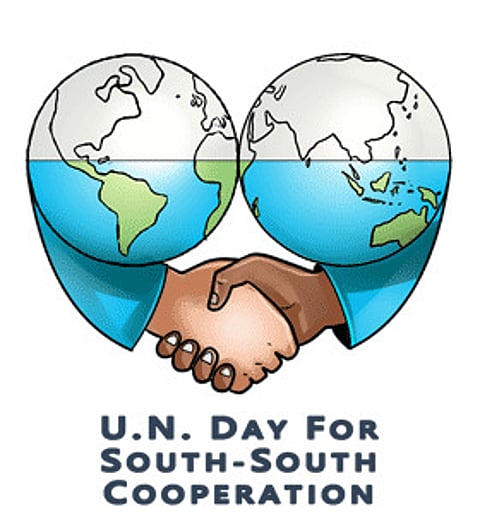

Every year on September 12, the International Day for South-South Cooperation honours the partnership between nations within the Global South across various areas including politics, economy, society, and technology. This day emphasizes the significance of unity and collaboration within developing countries to promote sustainable development, exchange knowledge, and diminish disparities.
Encourages Unity and Solidarity: South-South Cooperation highlights the common challenges and backgrounds of developing countries. It promotes harmony and enables nations to tackle shared issues such as poverty, underdevelopment, and inequality beyond the traditional North-South distinctions.
Collaboration for knowledge and resource sharing: Countries in the Global South work together to exchange their knowledge, technology, resources, and successful practices in various fields such as healthcare, education, agriculture, and sustainable development. This trade lessens reliance on aid from industrialized countries.
Supports UN Sustainable Development Goals (SDGs): South-South Cooperation plays a vital role in reaching the UN Sustainable Development Goals (SDGs) as outlined in the 2030 Agenda. By promoting cooperation among developing countries, it tackles important Sustainable Development Goals such as ending poverty, taking action on climate change, and encouraging inclusive economic development.
Promoting the Empowerment of Developing Nations: This promotes the self-empowerment of developing countries through mutual support, fostering innovation and advancement independently of outside assistance.
Study of past events
The beginnings of South-South cooperation can be linked to the 1955 Asian-African Conference in Bandung, Indonesia (the Bandung Conference), where recently sovereign nations aimed to establish their political and economic autonomy from past colonial rulers. This meeting laid the groundwork for the creation of the Non-Aligned Movement (NAM) in 1961.
1978 Buenos Aires Plan of Action marked the official acknowledgment of South-South Cooperation through the adoption of BAPA by 138 countries on September 12, 1978. BAPA initiated the establishment of technical cooperation among developing nations and instituted ways to share resources effectively.
The United Nations has continuously supported South-South Cooperation through various initiatives and agencies, such as the United Nations Office for South-South Cooperation (UNOSSC), established in 1974. In 2003, the UN General Assembly officially declared December 19 as the United Nations Day for South-South Cooperation but later changed it to September 12 in 2011, aligning it with the anniversary of the BAPA.
Emerging economies like China, India, Brazil, and South Africa. These nations have been pivotal in creating new models of cooperation that focus on regional and interregional partnerships. The International Day for South-South Cooperation highlights the potential of cooperation among developing nations in addressing global challenges through mutual support, reducing reliance on developed nations, and building a more equitable world.
